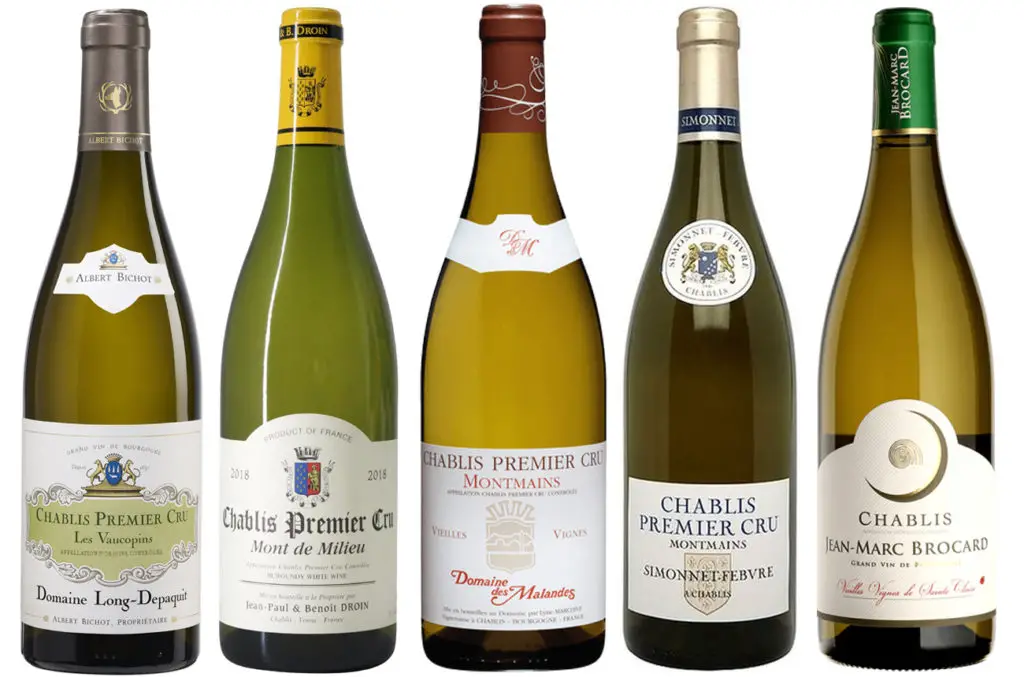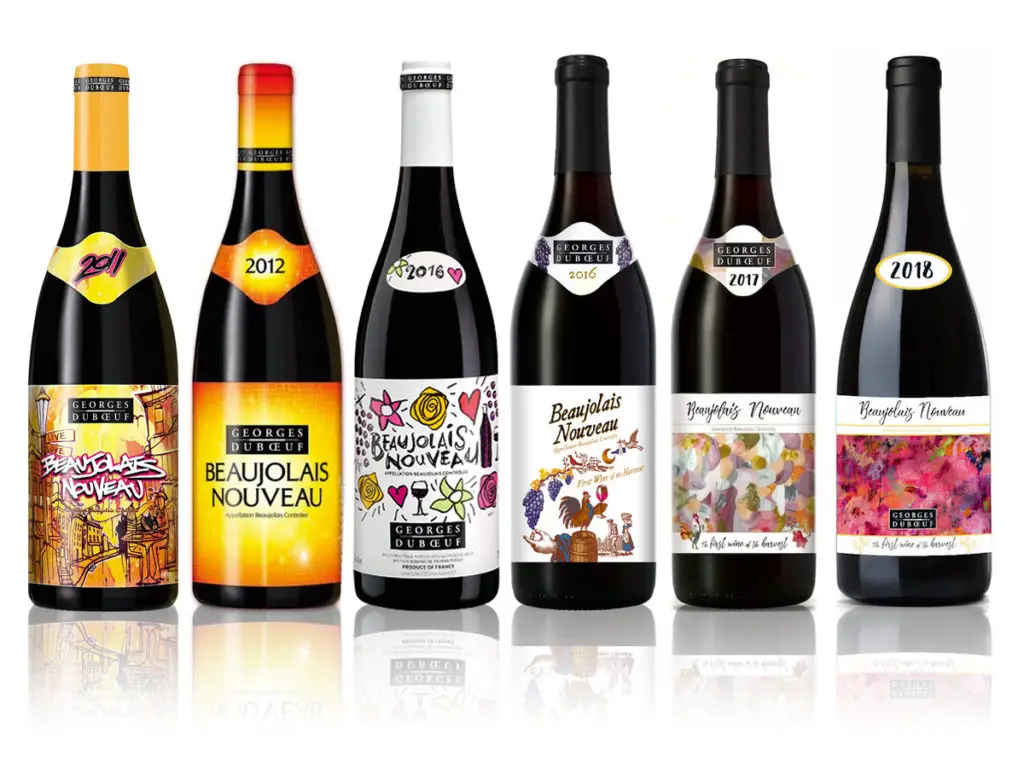Not everyone loves oysters, but those that do know that these little morsels are buttery, soft, and satisfying! Fresh oysters are perfect for hot summer days alongside glasses of icy champagne. Or are they?

Wine can make a big difference to the way your food tastes. Oysters taste different depending on whether they are cooked, raw, or fried.
If you’re serving oysters at your next event, you’ll want to make sure that you serve them alongside the right wine. If you’re stuck on what wine to choose, you’re in the right place!
You’ll find a list of the best wines to pair with oysters in this article. We’ve also included some tips on how to purchase oysters, as well as why oysters from various regions taste different from each other.
Oyster Basics
Oysters have been served as a delicacy throughout history. We don’t know when they were first eaten, but leftover oyster shells around ten thousand years old were found in Australia.
Oysters are found in shallow water in coastal locations. They used to live in large numbers around the American coast, in particular, New York. Street vendors in New York used to sell fresh oysters until their demise in the 1900s.
People can be put off by the way oysters look, but once you get over the tough shell, you’ll find that the oyster meat is firm and tasty.
They have a light metallic flavor with a pleasant saltiness. Oysters used to be enjoyed as an occasional treat, but now they are farmed throughout the year.
You can have one any time you’d like! Oysters are also rich in important nutrients, like protein, iron, and zinc.
Oyster Varieties
There are over 200 types of oysters, but we can only eat a few of these. Oysters that we eat come from the Ostreidae family. We generally only eat five types from this group. These are Pacific, Kumamoto, Atlantic, European, and Olympia oysters.
Oysters also taste different depending on where they’re sourced from. Oysters use their gills to filter water so that they can feed on algae.
As they do this, they also take up any features that the water has. This is why oysters are often characterized as east coast and west coast oysters.
East Coast oysters are tougher and saltier. They have smooth shells that are thin and not very deep.
West Coast oysters are sweeter and well-rounded. They have rougher shells that are deep and spherical.
Some East Coast types are Blue Point, Malpeque, and Nantucket oysters. West Coast types include Emerald Cove, Wescott, and Aurora oysters.
Tips On Purchasing Oysters
Oysters come in many looks, shapes, and sizes. They will have differences depending on if they are raw, cooked, or smoked.
Cooked oysters are generally safer to eat, as long as they are cooked properly. Raw oysters are served open (shucked) and inside a shell half.
Fresh oysters will look grey or blue, but some can be green or black. They shouldn’t smell fishy, but you should notice a salty smell, like the ocean.
If you’re purchasing oysters on your own, they’ll come in closed shells that you’ll need to shuck, or open. You can also find tins of shucked oysters contained in brine. Before you eat them, look at their color and smell them for anything out of the ordinary.
Even if you follow these cautions, you can’t completely rule out eating an oyster that’s gone bad. Some oysters may have been infected with harmful bacteria, but the risk comes with eating oysters.
Despite this, eating an infected oyster is a rare occurrence. Even if it does happen, the majority of sufferers will recover within a day, so don’t be put off by this!
What Wine Should You Pair With Oysters?
When oysters are eaten alongside wine, white wine is the traditional choice. White wines, both still and sparkling, are crisp and highly acidic.
These qualities go well with seafood. However, if you’re not a fan of white wine, you can pair oysters with red – but you must follow a few guidelines.
Avoid pairing oysters with dense, tannic, or oaky wines. Wines need to be light as heavy ones will mask the oysters’ flavor. If you must choose red wine, make sure it’s as fresh, light, and refreshing as possible.

Raw oysters go well with dryer wines with greater acidity. Sparkling white wines are a good choice here, while cooked oysters go better with crisp, less sweet white wines.
Heavy white wines are nice to pair with fried or smoked oysters. However, oysters also go well with other alcoholic drinks, like scotch, gin gimlets, and martinis. In the end, your choice of drink will depend on the type of oyster served and your tastebuds.
White Wines That Pair Well With Oysters
Here’s a list of white wines that pair well with oysters.
Champagne
Champagne goes well with several cuisines, especially oysters. No matter if they are shucked, smoked, or fried, Champagne pairs well with both raw and cooked oysters.
Lighter Champagne’s are best to have with shucked oysters, while heavier Champagnes go better with cooked oysters.
The sparkling and acidic qualities within Champagne will cleanse your palate for any following courses – or another oyster.
Chablis
Chablis is a location that’s famous for the Chardonnay it produces. If you haven’t tasted Chardonnay from Chablis, you’re missing out.
Chablis has delightful nutty notes with hints of pear and citrus. This type of Chardonnay is crisp and dry with a slight mineral quality. This minerality pairs well with the saltiness of oysters.
Chablis is normally unoaked, so it isn’t aged within barrels. This enhances how light and refreshing the wine is, so it won’t overpower the fresh flavors of the oysters.

Muscadet
Oysters served in their half-shell normally come with a lemon wedge. Before the oyster is eaten, the wedge is normally squeezed to release lemon juice onto the oyster.
A good alternative to the lemon is Muscadet wine. Muscadet is a location within the Loire Valley in France. As it’s right on the coast, oysters are always readily available. Wines from Muscadet are normally light and refreshing.
Higher in acidity, they also emit fruity notes like lemon and pear. If you’re enjoying a glass alongside an oyster, you won’t need a lemon wedge. Muscadet is acidic enough to enhance the oyster’s light flavors.
Sauvignon Blanc
Sauvignon Blanc is made all over the world, but each bottle has different qualities depending on where it’s produced. Entre-Deux-Mers is a Sauvignon Blanc grown in Bordeaux.
It has a light citrus flavor and a crisp finish that’s perfect against freshly opened oysters. If you’re enjoying a hearty dish with cooked oysters, try one from New Zealand.
These Sauvignon Blanc wines are highly acidic, so they’ll penetrate any rich foods and bring out the oyster’s firm texture.
Red Wine
White wines normally go better with oysters, but if you can’t give up red, don’t worry! Just remember to choose a red wine that isn’t too heavy, sweet, or bitter. The goal is to bring out the flavors of the oyster, not mask them.
Beaujolais
If you’re struggling to find a red wine that goes well with oysters, Beaujolais is a fantastic choice! Unlike most red wines, Beaujolais is fresh and delicate. You’ll notice fruity notes of berries and cherries with a pleasant earthiness underneath.
This wine is higher in acidity and has practically no tannins, so just like oysters, it’s a good choice to have on a hot summer’s day. Beaujolais is perfect for cleansing your palate and it won’t cover up the oyster’s natural flavors.
Conclusion
Oysters come in many different varieties, but we only eat 5 of these types. Their location contributes to the way that they taste. White wines are the best choice to pair with oysters, but you can do so with red wine, as long as it isn’t too heavy.
As oysters have a light and delicate flavor, the wine shouldn’t overpower the way it tastes. It needs to complement and enhance these notes, so dry, crisp, and acidic white wines are the best choice.
These include Champagne and Sauvignon Blanc, but if you prefer red, Beaujolais also pairs well with oysters.
